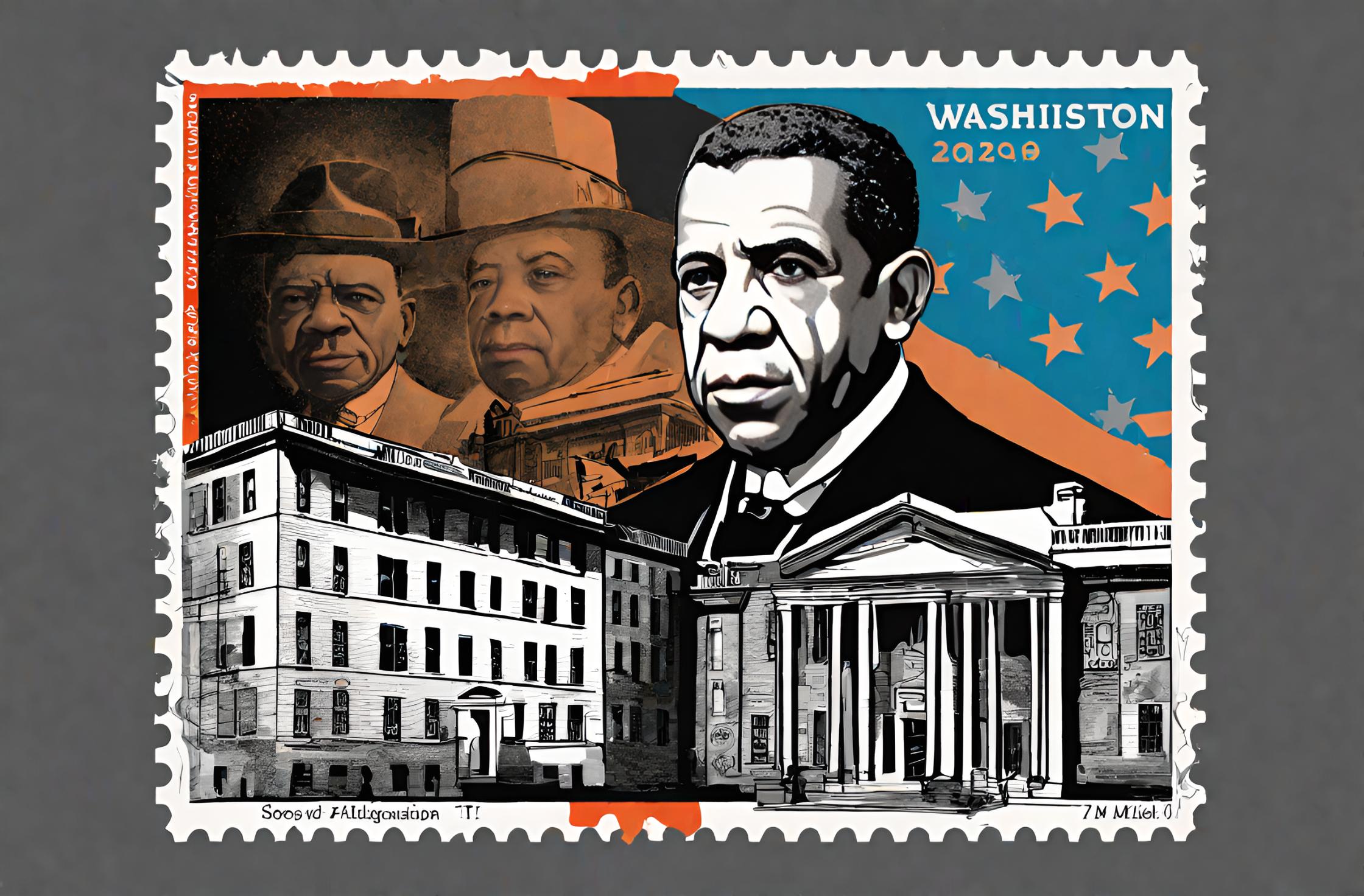Flashback to November 3
American History

1940
Booker T. Washington becomes the first African American to be depicted on a United States postage stamp
Read moreOn April 7, 1940, a significant event took place in United States history – Booker T. Washington became the first African American to be depicted on a United States postage stamp. This milestone was a tribute to Washington’s contributions as an influential educator, author, and leader in the African American community during a time of racial segregation and discrimination.
Booker T. Washington was born into slavery in 1856 and grew up in Virginia. Despite facing numerous challenges and obstacles, he possessed an unyielding determination to seek education and empower others in the African American community. Washington’s belief in self-improvement and vocational education earned him recognition as a leading figure in the fight for racial equality.
The decision to feature Booker T. Washington on a United States postage stamp in 1940 was a testament to his enduring legacy. The stamp, designed by prominent African American artist Fotios Diaman, depicted Washington in a dignified portrait. This representation symbolized the progress made in the recognition and appreciation of African American leaders and their contributions.
In the early 20th century, racial segregation was deeply rooted in American society. African Americans faced systemic discrimination and limited opportunities for upward mobility. Booker T. Washington dedicated his life to improving the conditions for his community and advocating for equal rights. He firmly believed that education and economic self-sufficiency were essential for achieving racial progress.
As the founder of Tuskegee Institute (now known as Tuskegee University) in Alabama, Washington established a renowned institution that provided vocational education and skills training for African Americans. Tuskegee Institute became a beacon of hope for countless individuals seeking education and economic empowerment. Washington’s philosophy of self-help resonated with many African Americans, and he became an influential voice in the national discourse on race and equality.
The decision to depict Booker T. Washington on a postage stamp was not without controversy. Some African American activists criticized Washington for his accommodationist approach to civil rights. They believed that his emphasis on vocational education undermined the fight for political and social equality. However, the commemoration of Washington on a postage stamp signified a recognition of his significance in African American history and the progress that had been made.
The event on April 7, 1940, marked a turning point in promoting racial inclusion and celebrating African American leaders. By featuring Booker T. Washington on a postage stamp, the United States Postal Service honored his contributions to education and civil rights. It served as a reminder of the hardships endured by African Americans and the resilience and triumph of their leaders in the face of adversity.
Today, the legacy of Booker T. Washington continues to inspire generations. His message of self-help and education resonates as a powerful tool for empowerment. The United States postage stamp featuring Washington’s image serves as a tangible symbol of progress in recognizing the contributions of African American leaders.
the inclusion of Booker T. Washington on a United States postage stamp on April 7, 1940, was a momentous occasion in American history. It celebrated the achievements of an influential leader and educator who dedicated his life to empowering the African American community. This event served as a powerful symbol of progress and recognition, highlighting the importance of education and equal rights for all. Booker T. Washington’s image on the postage stamp continues to inspire and remind us of the contributions made by African Americans throughout history.
We strive for accuracy. If you see something that doesn't look right, click here to contact us!
Sponsored Content

Greensboro Massacre
On November 3, 1979,…

Electronics retailer Circuit City…
"On November 3, 2008,…

At Arlington National Cemetery,…
"On November 3, 1995,…

“Black Bart the Po-8”…
On November 3, 1883,…

